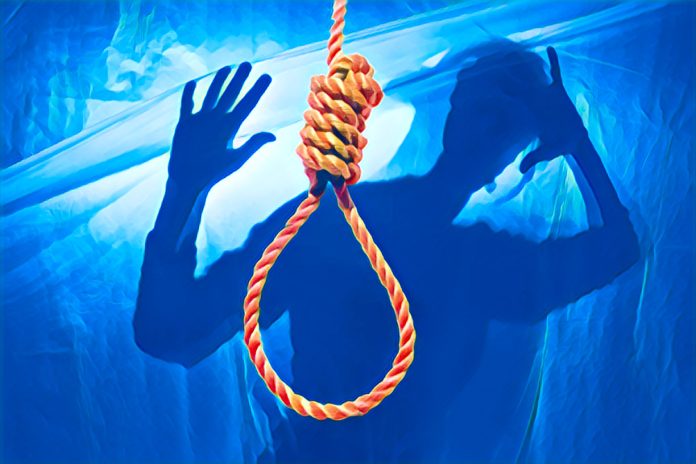Key Points
-
Nigeria’s suicide crisis worsens as stigma and laws block help.
-
Survivors face prosecution under Section 327 instead of therapy.
-
Experts urge decriminalisation to stop Nigeria’s suicide epidemic.
In Nigeria, a law dating back to colonial times still defines suicide attempts as a crime. Survivors who make it to the hospital often face police interrogation rather than therapy.
Under Section 327 of the Criminal Code, anyone who “attempts to kill himself” faces up to one year in prison.
That law has turned a mental health emergency into a legal battle. Every 33 minutes, one Nigerian dies by suicide — about 16,000 lives lost annually, according to the World Health Organization (WHO). Yet those who survive are often punished instead of treated.
Experts describe it as a “silent epidemic.” Nigeria, with a population of more than 200 million people, has fewer than 300 psychiatrists, leaving millions without access to care.
Dr. Taiwo Obindo, president of the Association of Psychiatrists in Nigeria, said criminalisation has “become one of the biggest barriers to prevention and early intervention.”
“When you punish people for trying to end their pain, you drive them deeper into silence,” he said.
Victims punished instead of protected
Aisha (not her real name), a 28-year-old from Lagos, survived after swallowing sleeping pills during an argument with her partner.
But instead of being referred for counselling, she was handcuffed by police and charged with attempted suicide.
Her story mirrors that of Bolanle, a Lagos trader overwhelmed by debt, and Albert, a construction worker who jumped into the lagoon out of frustration. Each was rescued — and later prosecuted.
“This law criminalises pain,” said human rights lawyer Evans Ufeli of the Cadrell Advocacy Centre. “People in crisis are being dragged from hospital beds to courtrooms. It’s a violation of basic human rights.”
Ufeli said the policy not only deters victims from seeking help but also undermines Nigeria’s obligations under international human rights conventions.
Drug abuse and poverty intensify despair
Nigeria’s growing drug problem is another hidden driver of suicide. The United Nations Office on Drugs and Crime (UNODC) estimates that about 14 percent of Nigerians aged 15 to 64 misuse psychoactive substances, including tramadol and codeine — nearly three times the global average.
Dr. Martin Agwogie, founder of the Global Initiative on Substance Abuse, said substance misuse often worsens depression and impulsive behaviour.
“Mental health and addiction must be treated together,” he said. “When you criminalise distress, people hide instead of seeking treatment.”
Economic hardship has also taken a toll. Rising unemployment, food inflation, and social isolation have pushed many Nigerians into despair, particularly among youth. Studies show that half of suicide victims in the country are under the age of 34.
Global concern and the push for reform
The WHO and United Nations have repeatedly called on Nigeria to repeal its punitive suicide laws.
Both organisations argue that treating suicide attempts as crimes violates human rights and discourages survivors from seeking care.
In 2024, the Federal Government established a national task force led by legal scholar Prof. Cheluchi Onyemelukwe to guide the process of decriminalising attempted suicide.
“Attempted suicide is a cry for help,” she said. “The law must protect, not punish.”
Coordinating Minister of Health and Social Welfare, Prof. Muhammad Ali Pate, said the government aims to complete the decriminalisation process by December 2025.
But psychiatrists warn that without investment in mental health infrastructure, reform alone will not suffice.
Dr. Baba Issa of the Federal Neuro-Psychiatric Hospital, Kwara State, said the country’s health system remains fragile.
“Most primary health centres lack trained mental health workers,” he said. “Patients often come in only when it’s too late.”
Media and stigma: changing the narrative
Experts also caution that irresponsible media reporting fuels stigma and can even trigger copycat behaviour.
A 2023 study in the Indian Journal of Psychiatry found that most Nigerian suicide reports lacked expert input and focused on methods rather than prevention resources.
To counter that, Vanguard will host a landmark Mental Health Summit on October 17, 2025, focusing on suicide prevention, decriminalisation, and responsible reporting.
The summit will gather psychiatrists, lawmakers, and human rights advocates to chart a new national strategy.
A call for compassion and prevention
Nigeria’s mental health advocates agree that prevention requires a compassionate, multi-sector approach — from police and clergy to teachers and families.
“Every suicide attempt is a preventable moment of crisis,” said Obindo. “People need care, not condemnation.”
For Aisha, Albert, and many others, the scars remain. Their recovery continues under the shadow of stigma and criminal records.
Experts warn that unless laws and policies shift toward care and dignity, Nigeria’s suicide epidemic will remain a silent war against its own people.
Nigeria’s Mental Health Snapshot
-
Law: Suicide attempt = 1-year jail (Section 327)
-
Deaths: About 16,000 yearly
-
Psychiatrists: Fewer than 300 for 200 million people
-
Drugs: Rising tramadol, codeine misuse
-
Youth: Half of suicide victims under 34
-
Helplines: SURPIN 0908 103 1239 / 1240; MANI 0701 075 6264



